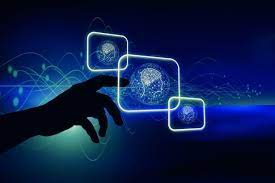How artificial intelligence is changing the world
Artificial intelligence is one of the most talked-about topics these days. But what exactly is artificial intelligence and what impact does it have on our lives?
1. what is artificial intelligence?
What is artificial intelligence? Artificial intelligence (AI) is the ability of a computer program or a machine to think and learn. It has been defined in many ways, but in general it can be described as a way of making a computer system “smart” – that is, able to understand complex tasks and carry out complex commands. AI is still in its early stages, and there is much debate about what it can and cannot do. Some people believe that AI will eventually be able to carry out any task that a human can do, while others believe that there are some tasks that will always be beyond the capabilities of machine intelligence. However, there is general agreement that AI has the potential to revolutionize many areas of society, from healthcare to transportation. In healthcare, AI could be used to diagnose diseases more accurately and faster than human doctors. In transportation, AI could be used to develop self-driving cars. And in many other areas, AI could be used to automate repetitive tasks and improve decision-making.
2. the history of artificial intelligence
: A brief history The history of artificial intelligence (AI) dates back to the 1950s. It began with the idea that computers could be used to simulate human intelligence and behaviors. This early work was driven by the belief that computers could eventually become as intelligent, if not more so, than humans. As technology advanced and computing power increased, AI began to gain traction in both academia and industry. In 1956, a group of researchers gathered at Dartmouth College for a summer workshop. This gathering has since been credited as the first official AI conference, where the term “artificial intelligence” was coined. At this time, researchers explored ways in which AI could be applied to problem-solving tasks, such as playing games or performing calculations. By the 1970s, computer scientists had developed techniques such as knowledge representation and natural language processing, which enabled machines to understand human language and intentions. During this period, AI research shifted from simulation of human intelligence towards developing machines capable of making decisions on their own. This led to the development of expert systems – computer programs designed to replicate the decision-making processes of experts in various fields such as medicine and finance. In the 1980s, machine learning algorithms were developed which allowed computers to improve their performance through experience without being explicitly programmed. This revolutionized how AI was approached and opened up new possibilites for its applications in everyday life. Today, AI has become an integral part of our lives – from voice assistants such as Siri and Alexa to self-driving cars – it is hard to imagine a world without AI now. Yet despite its current ubiquity, it is still in its infancy with potential for much more progress yet to come. As technology advances further, there is hope that we may one day see machines possessing tonality – persuasive speech or writing – similar or even superior to that of humans.
3. how artificial intelligence is used today
Artificial intelligence is no longer just a thing of the future. It’s something that’s happening right now, and it’s changing the way we live and work. From Siri and Alexa to self-driving cars, AI is becoming more and more integrated into our everyday lives. But what exactly is AI? And how is it being used today? Here’s a quick overview: AI is short for artificial intelligence. It refers to the ability of a computer to mimic human behavior. This can include things like understanding natural language, recognizing patterns, and making decisions. AI is being used in a variety of ways today, from personal assistants to self-driving cars. In many cases, it’s used to automate tasks or make them easier for humans to do. For example, AI can be used to help filter emails or choose the best route for a driverless car. As AI continues to evolve, its applications will become even more widespread. We’ll see more AI-powered devices and programs enter our homes and workplaces. And as AI gets better at imitating human behavior, we’ll see even more amazing things happen that were once only possible in science fiction movies

4. the benefits of artificial intelligence
will revolutionize the way we communicate The potential of artificial intelligence to revolutionize communication is immense. AI can help us better understand our audiences, craft more effective messages, and create more meaningful interactions. By leveraging the power of natural language processing (NLP) and machine learning, AI can analyze large volumes of data to uncover valuable insights about consumer behavior and preferences. This data can be used to develop personalized content that resonates with each individual customer. AI can also be used to automate parts of the communication process. It can generate personalized email responses and make real-time recommendations based on customer feedback or other data sources. By eliminating mundane tasks, AI frees up time for marketers to focus on higher-value activities such as developing strategic campaigns or engaging in meaningful conversations with customers. Furthermore, AI has the ability to detect subtle variations in tone and sentiment when communicating with customers. This means that AI can help brands ensure their communications are delivered in a way that shows empathy and understanding while still being persuasive. By tailoring their messages to fit the customer’s needs, businesses can effectively build relationships with their customers and foster loyalty. In summary, artificial intelligence has great potential to revolutionize communication by providing more personalized customer experiences, automating mundane tasks, and detecting subtle tonal variations for greater persuasion. As businesses continue to rely on digital channels for marketing and customer service efforts, AI will become increasingly important for delivering successful campaigns and building strong relationships with customers.
5. the potential of artificial intelligence
There is a lot of potential for artificial intelligence, and we are just beginning to scratch the surface. With advances in machine learning and robotics, we are seeing more and more applications of artificial intelligence in our daily lives. From personal assistants like Siri and Alexa to self-driving cars and automated manufacturing, artificial intelligence is changing the way we live and work. There are also some amazing possibilities for medical applications of artificial intelligence. Research is already underway to develop AI systems that can diagnose diseases and recommend treatment plans. This could revolutionize the way we treat illnesses, allowing for faster and more accurate diagnoses. Artificial intelligence has the potential to change our world in ways we can’t even imagine yet. It’s an exciting time to be alive!
6. the concerns about artificial intelligence
When it comes to artificial intelligence, there are a lot of concerns that people have. Some worry about the possibility of robots becoming smarter than humans and taking over the world. Others worry about the impact that AI will have on jobs, with many fearing that machines will eventually replace humans in the workforce. There are also ethical concerns surrounding AI, with some worried about what could happen if robots were given the ability to learn and make decisions for themselves. There are also fears that AI could be used for evil purposes, such as creating autonomous weapons. Despite all of these concerns, there is also a lot of excitement surrounding artificial intelligence and its potential. Many believe that AI will bring about a new era of human prosperity, with some even likening it to the industrial revolution. There is no doubt that AI will have a major impact on our lives in the years to come and it will be interesting to see how these concerns play out.
